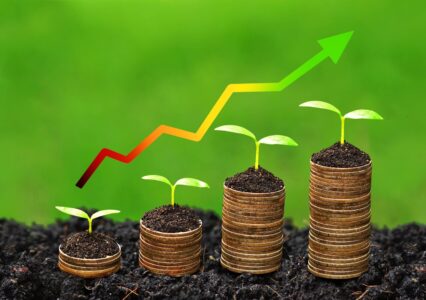Jasmine Birtles
Your money-making expert. Financial journalist, TV and radio personality.

In the last couple of years, the buzz around the opportunities created by ‘ethical investing’ has only increased. As more consumers become more socially aware of the impact that companies have on our society, planet and our wider infrastructure, ethical investing has become a path to invest in companies creating products and services that are doing more good for the world.
So how do you go about investing ethically, and choosing the right ethical companies to develop with your funds?
There are two product acronyms that will show whether a company is ‘ethical’
But as with most things, the definition of an ethically ‘good’ company is subjective. This is mostly defined as to whether a company is socially responsible. New research featured in the Guardian show that ethical investments are actually outperforming traditional funds as a result of Covid-19, as more companies are exposed for their incapability of helping solve such a global crisis.
Funds that are focused on helping solve the endless problem of our environmental health, populate the majority of ethical investments. However, socially good companies that create products and services that claim to improve life for our society, its people, the way we live and our everyday infrastructure also exist.

You can go to specific brokers who specialise in ethical investing, and who will be able to manage a wider portfolio of stocks and shares in companies spanning a wider variety of industries.
On many investment sites, there are specific boxes such as ‘environmental’, ‘social’ or ‘sustainable’ that act like a screening process or ethical criteria. Brokers and investment funds will be able to identify how ethical a company is when they’re being listed for investment, so the more nitty gritty details will be kept behind in lieu of a company’s ethical mission.
However, for the more tech savvy of our audience, plenty of apps have now entered the market like Tickr or Freetrade, which are specifically intended for socially good investing.
You have to decide your motive and intention for socially good investing – and each definition of ‘ethical’ investing is widely subjective. So it’s good to think about what you want from your money, which companies you think will best suit this purpose, and whether you want a more-varied approach instead of investing for quick returns.
There are different investment processes to conventional investing – it’s important to consider whether you want to own individual shares, allowing for more control and a bigger share of voice as a shareholder in the business, or whether to go through a chosen ethical ‘fund’. Choosing a fund is more expensive, you have less control, but is ideal for the beginner investor finding their feet in such a difficult and complex financial world.
Ethical investing is unlike conventional investing because it’s such a new sector to the investment sector – past performance isn’t a guide to future returns as there is more risk associated to such purpose-led companies. If you’ve invested in wind energy but decide to turn to cause-led companies solving elderly isolation, the factors and variables affecting each company are extremely different.
Which leads us to our next point: why ethical investing is higher risk than conventional investing. Because of your pre-determined passions, values and intentions for your investment, you’re choosing to invest in a less-economically minded company.
Many companies and brands in the ethical investing circuit have had less time to create concrete proof-of-concepts. Their original investors have been sold on an idea, and this isn’t a bad thing. But it means that the calculated risk of investing your money is proportionally much higher than an oil or gas investment.
It’s a crowded market, there are plenty of startups competing for your attention – as we discussed in the first point. There aren’t that many opportunities for higher returns at the moment, yet with the transformation of many companies becoming more purpose than profit led, in 10 or 20 years this is set to change.
More companies are realising their impact and the necessity to change the ways they’ve been monitoring their supply chain, distribution, environmental footprint and more, and these ethical tech startups are cutting through the noise to make their more conscious products front of mind.
This is an excellent chance to invest in the next solution provider for many sectors, and do your bit to help further the development of our society, planet and health for many years to come.
